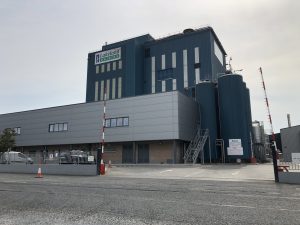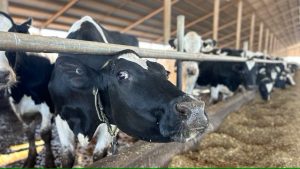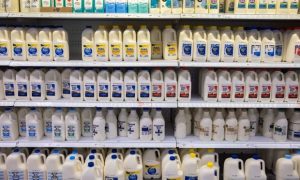
Key points:
Dairy workers are fighting to implement stricter rules for their workplaces on high heat days
They are reporting increasingly hot days and a lack of clear rules
While employers must minimise risks in hot weather, the guidance is broad
Currently, there are no clear minimum requirements that workplaces must abide when dealing with days of extreme heat or air quality.
While employers must minimise risks, the guidance on those risks can be broad.
Increasingly hot days and a lack of clear rules led Warrnambool dairy worker Dave Clements and his colleagues to work alongside the union to introduce minimum requirements in their bargaining agreement in 2023.
“We’ve introduced this log of claims … to standardise our working conditions in the dairy industry Australia wide,” he said.
The log of claims include paid leave if the factory needs to shut down due to inclement weather and clauses providing clarity on heat and smoke thresholds.
As a member of the National Dairy Committee and the United Workers’ Union, he noted this was the first time the dairy industry was taking on the issue in a systematic way.
“I’d like to think that the dairy industry are innovators when it comes to this sort of thing,” Mr Clements said.
Ongoing concern
After the catastrophic 2019 bushfires, the United Workers’ Union conducted research with the University of Technology Sydney’s Climate Justice Research Centre on working in high heats.
In the report, almost 60 per cent of members said on the heat affected them “quite a bit” or “very much” in their work.
UWU’s Executive Director Godfrey Moase expressed concern that the issue worried workers across the country, as well as about reports people had difficulty getting policies implemented in their workplaces for extreme temperatures.
“I think the regular punter on the street would be very surprised to know how unprepared we are for these ongoing situations,” he said.
“There is no national or statewide safety standard around extreme temperatures in the workplace and no minimum agreed standards around those sorts of protocols.”
A sustainable future
Mr Clements said south-west Victoria relied heavily on the dairy industry, so having workers leave or be deterred from entering the industry due to extreme weather would create problems.
He said the community of Dennington was still feeling the effects of the Fonterra milk powder plant closure years ago, which highlighted the industry’s importance.
“This isn’t about not us not doing the job. We want to get the job done. We just need to do it safely for the sake of the workers and the communities,” he said.






















